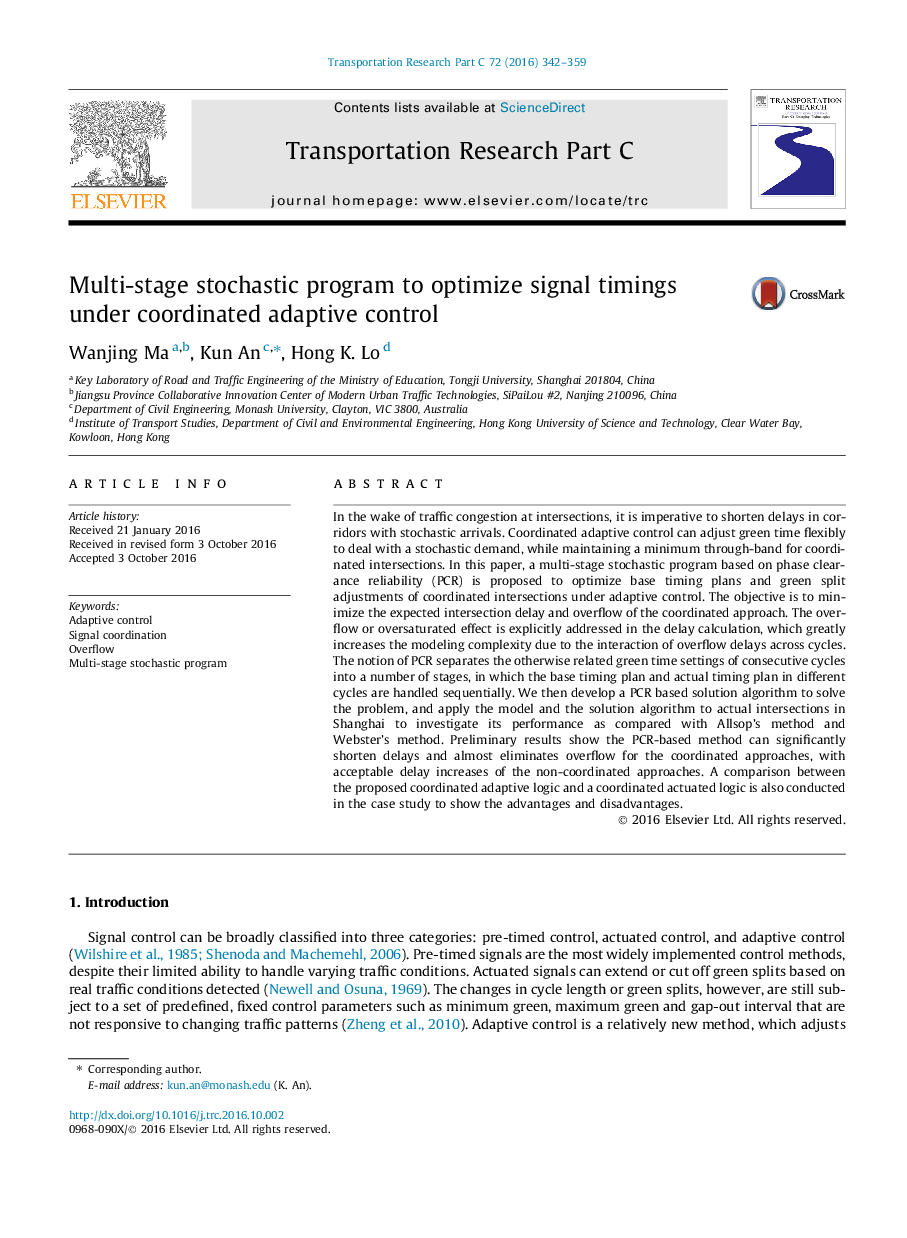| Article ID | Journal | Published Year | Pages | File Type |
|---|---|---|---|---|
| 4968688 | Transportation Research Part C: Emerging Technologies | 2016 | 18 Pages |
Abstract
In the wake of traffic congestion at intersections, it is imperative to shorten delays in corridors with stochastic arrivals. Coordinated adaptive control can adjust green time flexibly to deal with a stochastic demand, while maintaining a minimum through-band for coordinated intersections. In this paper, a multi-stage stochastic program based on phase clearance reliability (PCR) is proposed to optimize base timing plans and green split adjustments of coordinated intersections under adaptive control. The objective is to minimize the expected intersection delay and overflow of the coordinated approach. The overflow or oversaturated effect is explicitly addressed in the delay calculation, which greatly increases the modeling complexity due to the interaction of overflow delays across cycles. The notion of PCR separates the otherwise related green time settings of consecutive cycles into a number of stages, in which the base timing plan and actual timing plan in different cycles are handled sequentially. We then develop a PCR based solution algorithm to solve the problem, and apply the model and the solution algorithm to actual intersections in Shanghai to investigate its performance as compared with Allsop's method and Webster's method. Preliminary results show the PCR-based method can significantly shorten delays and almost eliminates overflow for the coordinated approaches, with acceptable delay increases of the non-coordinated approaches. A comparison between the proposed coordinated adaptive logic and a coordinated actuated logic is also conducted in the case study to show the advantages and disadvantages.
Related Topics
Physical Sciences and Engineering
Computer Science
Computer Science Applications
Authors
Wanjing Ma, Kun An, Hong K. Lo,
